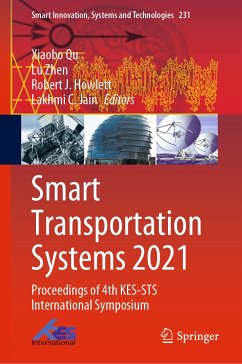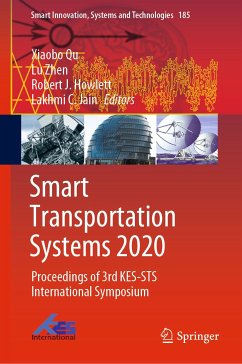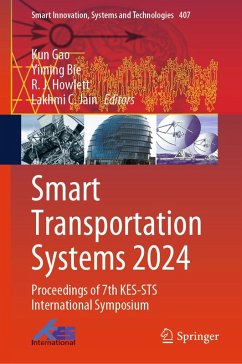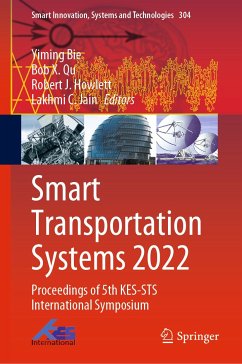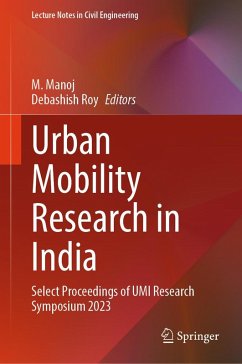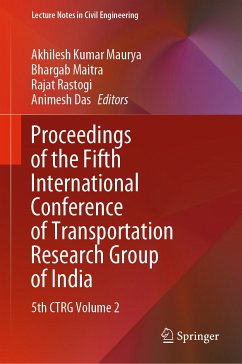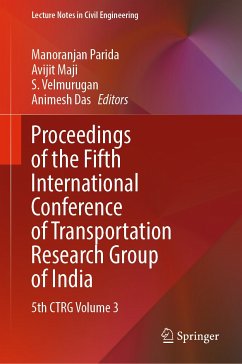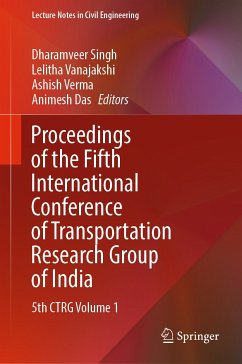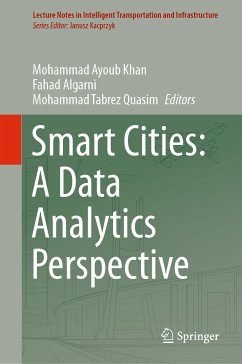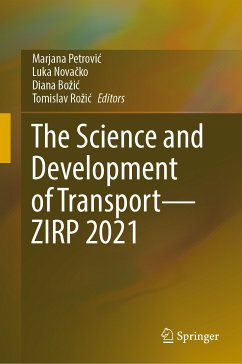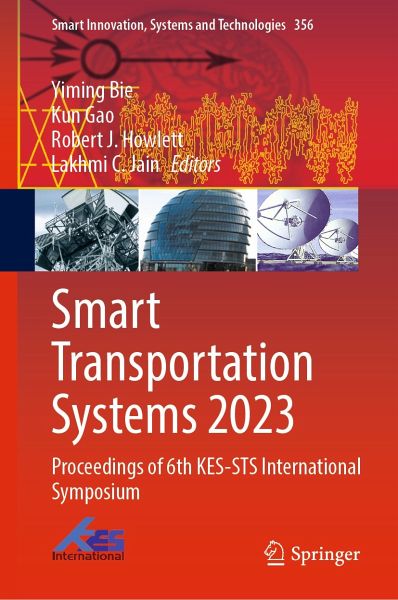
Smart Transportation Systems 2023 (eBook, PDF)
Proceedings of 6th KES-STS International Symposium
Redaktion: Bie, Yiming; Jain, Lakhmi C.; Howlett, Robert J.; Gao, Kun
Versandkostenfrei!
Sofort per Download lieferbar
175,95 €
inkl. MwSt.
Weitere Ausgaben:

PAYBACK Punkte
88 °P sammeln!
This book gathers selected papers presented at the KES International Symposium on Smart Transportation Systems (KES STS 2023). Modern transportation systems have undergone a rapid transformation in recent years, producing a range of technological innovations such as connected vehicles, self-driving cars, electric vehicles, Hyperloop, and even flying cars, and with them, fundamental changes in transport systems around the world. The book discusses current challenges, innovations, and breakthroughs in smart transportation systems, as well as transport infrastructure modeling, safety analysis, fr...
This book gathers selected papers presented at the KES International Symposium on Smart Transportation Systems (KES STS 2023). Modern transportation systems have undergone a rapid transformation in recent years, producing a range of technological innovations such as connected vehicles, self-driving cars, electric vehicles, Hyperloop, and even flying cars, and with them, fundamental changes in transport systems around the world. The book discusses current challenges, innovations, and breakthroughs in smart transportation systems, as well as transport infrastructure modeling, safety analysis, freeway operations, intersection analysis, and other related cutting-edge topics.
Dieser Download kann aus rechtlichen Gründen nur mit Rechnungsadresse in A, B, BG, CY, CZ, D, DK, EW, E, FIN, F, GR, HR, H, IRL, I, LT, L, LR, M, NL, PL, P, R, S, SLO, SK ausgeliefert werden.



